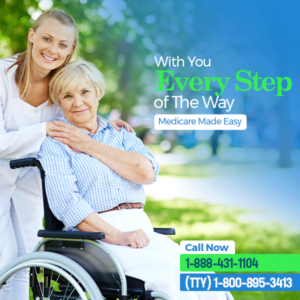Massachusetts Assisted Living Residences (ALRs)
- Benefits By State Editor

Massachusetts Assisted Living Residences (ALRs) provides residential, personal care, and meals to eligible adults in the state of Massachusetts. It is different from the nursing care facility and does not provide any medical services. People who require serious medical services are not eligible for this program. The program provides its services at an affordable monthly fee for the rent of the facility and other services.
The program aims to provide eligible adults with various support and home care services. The program helps older people who are unable to take care of themselves to attain self-sufficiency by providing an extensive range of services.
The program is aimed toward peoples who required someone’s help to perform daily life activities in including dressing bathing, taking medications, transportation help, and more. The ALR program also helps individuals who require 24-hour assistance by providing a caregiver who is available to them all the time. The eligibility members of the program can opt for either residential care or in-home services.
Residents of an Assisted Living Care facility have the right to make their own rules and regulation while following the standard rules that each ARL is supposed to follow according to the regulatory standards. Each ALR can only operate if it is certified by the Massachusetts Executive Office of Elder Affairs. Every ALR designs its program keeping in mind the consumers want and needs and each member of the Assisted Living Residence program have the right to make de idiots based on their choice and they are made part of each step in the process.
The Massachusetts Assisted Living Residences (ALRs) provides different services to the eligible individuals including assistance with takes like bathing, cooking, dressing, and ambulation. It also helps individuals with performing Activities of Daily Living (ADL) like housekeeping, washing the clothes, and helping the individual become a part of a community by facilitating them through their transition to the caregiving facilities. The individuals are also aided in taking their medication as well as 24/7 emergency assistance when needed. The program has a proper response system for the residents to help them meet their urgent needs which are required by the EOEA standards. Besides that, the program healthy meal that is nutritious and fulfills the daily food requirements of the individual as well as provides other services including recreations, entertainment, social, and transportation services.
In some cases, the ALR might also have nursing services but it should be by an agency that is health certified and is only provided on a part-time basis or for a temporary time being. The nurses that are staffed by the residence do not have the authority to allow a non-listened person to carry our medical care or nursing care on the ALR’s residents. They can also not allow or order a staff member to supervise or carry out medical practice on any resident.
The staff that is responsible for providing personal care services to the residents should receive a one-hour orientation for providing supervised medical care and medication. The staff responsible for providing services to residents with dementia should receive an extra two-hour orientation on that topic. The staff of the ALR program that has not licensed nurses or licensed personal care providers needs to complete training of 54 hours to the residence.
The Executive Office of Elder Affairs requires a working plan from every Assisted Living Residence which includes a detailed list of the measures taken by the ALR’s to meet the needs of the special care members, regulating the resident population, and steps on how the ALR will meet the needs of the members. The operating plan also involves the ALR’s approach towards catering to those individuals who need assistance due to a disability or cognitive impairment.
Other than that, the program is also required to provide a report on the daily activities of the special care residents. The different activities performed by the resident can include personal care activities, daily activities, and activities to enhance their sense and memories, and transportation activities.
You are required to send certain documents at the time of submission including an Assisted Living Certification Application Form (you can find the form on the program’s official website). Along with that, you are required to submit an operating plan, a plan for individual services, and an assessment form along with a 200$ fee.
To learn more about the Massachusetts Assisted Living Residences (ALRs) Program kindly visit the Mass.org website. To apply for the residence you can contact the Executive Office of the Elder Affairs (EOEA) at the numbers – (617) 727-7750 / (800) 243-4636 (Toll-Free number)
To apply for the Massachusetts Assisted Living Residences (ALRs) via fax kindly send your application form and documents at (617) 727-9368 or apply online at www.massoptions.org
Also Read: Missouri Weatherization Assistance Program

